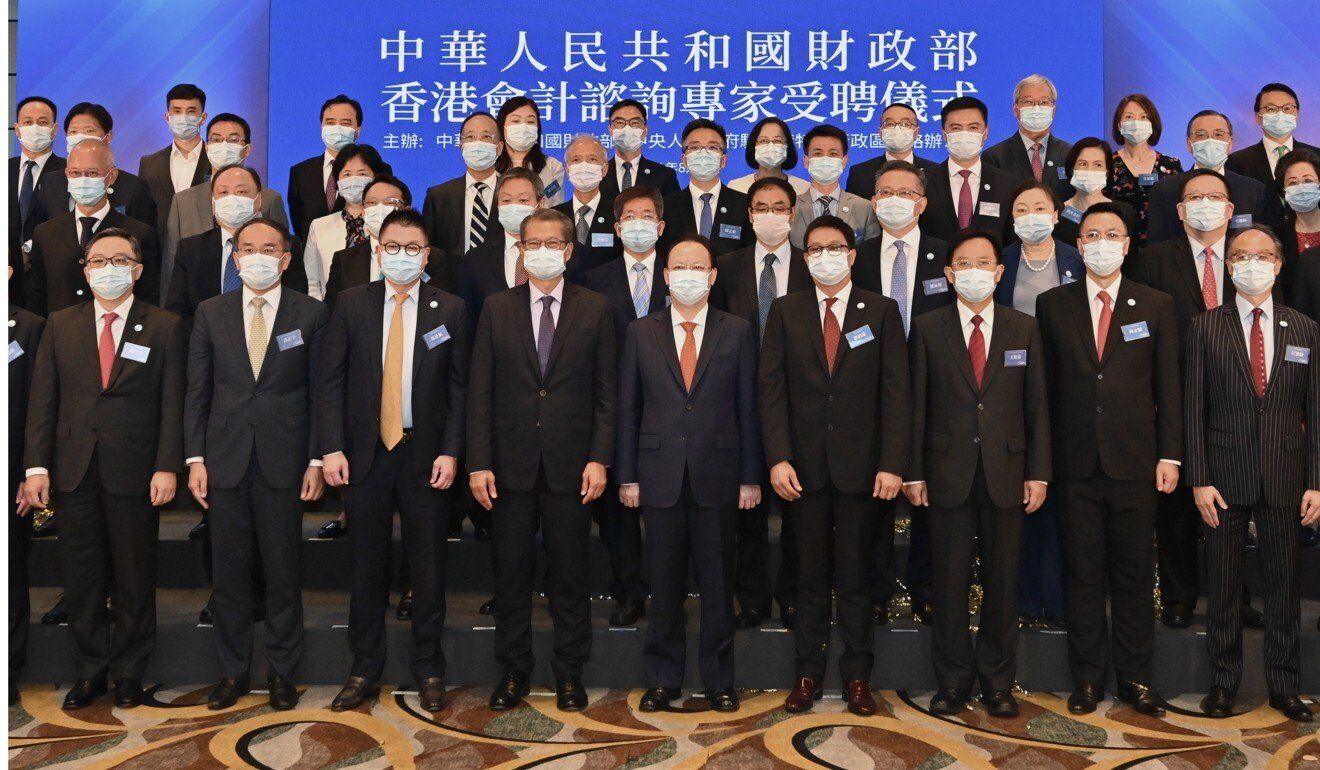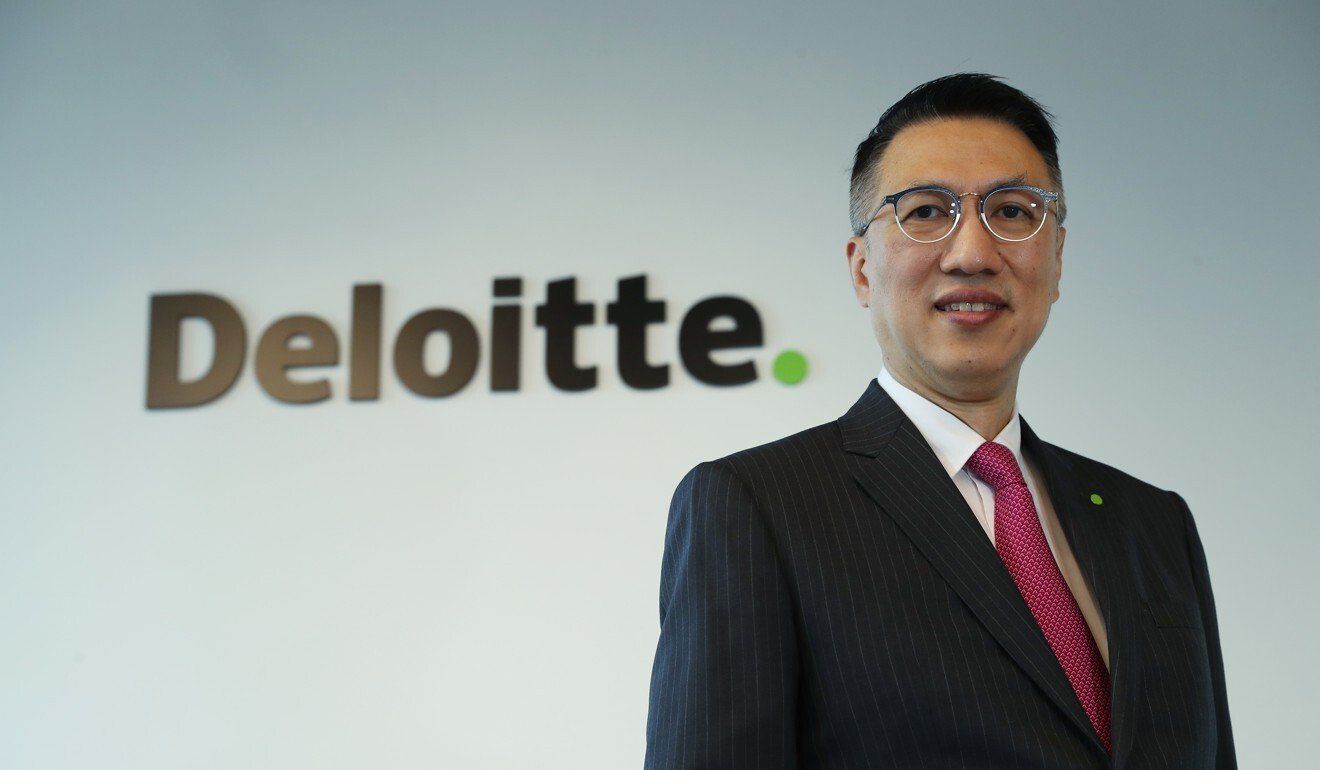Hong Kong News

China’s finance ministry appoints 40 Hong Kong accountants as advisers
China’s finance ministry has appointed 40 Hong Kong accountants as advisers to act as a bridge for the industry between the city and the rest of the country, in a move a political analyst described as part of Beijing’s growing efforts to build up the pro-establishment camp ahead of coming legislative elections.
Beijing’s liaison office in Hong Kong said on Wednesday it had chosen professionals from the big four accounting firms and different sectors to serve as advisers for the next five years in a fresh round of appointments following the previous batch of 39 in 2016.
Liaison office deputy director Tan Tieniu said the accounting sector played a bridging role in the economic development and integration of the city and mainland China. He tasked the new appointees with building solidarity in the industry and coming up with ways to push forward economic integration via a new think tank, the Association of Hong Kong Accounting Advisors.
 Hong Kong Financial Secretary Paul Chan (front row, fourth left) and
liaison office deputy director Tan Tieniu (front row, centre) attend a
ceremony for newly appointed accounting advisers on Tuesday.
Hong Kong Financial Secretary Paul Chan (front row, fourth left) and
liaison office deputy director Tan Tieniu (front row, centre) attend a
ceremony for newly appointed accounting advisers on Tuesday.
Raymund Chao, the think tank’s chairman, said the ministry’s appointment was an honour and a responsibility, which aimed to propel the industry forward with sustainable development, nurture youth talent and contribute to Hong Kong’s position as a global commercial and financial centre.
“The think tank will be based on the spirit of patriotism and love for Hong Kong, constant self-improvement, hard work and flexibility to accomplish the tasks,” he said.
Financial Secretary Paul Chan Mo-po, who delivered a speech at the appointment ceremony on Tuesday, said the accounting sector was an important component in a reformed Election Committee.
A key part of Beijing’s recent overhaul of Hong Kong’s electoral system, the 1,500-strong committee is responsible for picking the city’s leader, nominating lawmakers and fielding representatives of its own in the legislature.
Chung Kim-wah, deputy executive director of the Hong Kong Public Opinion Research Institute, said the appointments and the formation of the think tank were part of Beijing’s efforts to grow the pro-establishment camp’s influence ahead of Legislative Council elections in December.
“It is not unusual to honour some patriotic accountants who are expected to vote in the election,” he said. “It is hoped more people will vote in the elections.”
Legislator Felix Chung Kwok-pan, leader of the pro-business Liberal Party, said he was not surprised by the appointments.
“In recent years, some accountants might be vocal and were supportive of the opposition camp, but many of them are eager to expand their business on the mainland and maintain a good relationship with mainland enterprises,” he said.
“They are willing to accept the changes in Hong Kong. So after the coronavirus epidemic and society calmed down gradually this year, the central government is willing to make such appointments again.”
Some of the new appointments, such as KPMG managing partner Ayesha Macpherson Lau, lost in the Election Committee election in November 2016.
Lau, a tax expert and chairwoman of Hong Kong’s pension regulator the Mandatory Provident Fund Schemes Authority, said of her appointment: “Hong Kong accounting advisers can contribute to China’s economic development and provide international perspectives.”
 Deloitte China chairman Dennis Chow.
Deloitte China chairman Dennis Chow.
Three advisers connected to Deloitte were appointed – Deloitte China chairman Dennis Chow Chi-in, retired chairman Philip Tsai Wing-chung and chief operating officer Thomas Chung.
“These appointments are testament to the Ministry of Finance’s commitment to leverage Hong Kong accounting professionals’ expertise to promote accounting reform and development between the mainland and the city,” Chow said.
Others appointments include Agnes Chan, the Hong Kong and Macau managing partner of EY, another big four accounting and consultancy firm, and Stephen Law, an executive council member of the Hong Kong Independent Non-Executive Director Association.
Certified accountant Nelson Lam Chi-yuen, who lost in the 2012 Legco polls, was also among the 40.
He said since his first appointment in 2016, he had enjoyed opportunities to engage in exchanges with mainland financial officials, as well as provide professional training to accountants across the border and in Southeast Asia.
In June, the Hong Kong government proposed expanding the mandate of the Financial Reporting Council, the top accountancy regulator, by giving it oversight over audits of private companies.
The proposed changes will diminish the role of the Hong Kong Institute of Certified Public Accountants, a self-regulatory body set up in 1973 that issues accounting licences, sets industry standards, provides training and regulates the city’s 46,000 accountants.
Dismissing concerns the new association would further undermine the institute’s role in Hong Kong, Lam said the two bodies had different missions.
“The institute is a municipal or regional body which focuses on the interest of the city’s accountants. The new association is made up of advisers appointed by the country, to act as a bridge between the city and the mainland,” he said.











